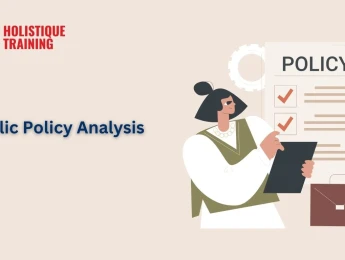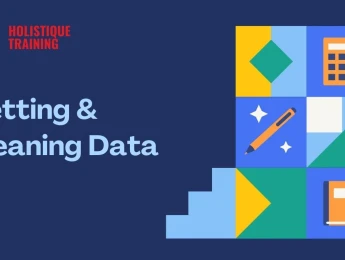Analytics are vital for making informed business decisions and maximising operational value. This approach emphasises the importance of collecting qualitative and quantitative data from all sources to comprehensively understand before implementing procedural changes. Reliable and accessible systems are essential for storing and recalling this data, ensuring its security and integrity. Additionally, analytics can serve as a tool for risk mitigation or validating concepts based on previous models.
Access to extensive data insights will empower you to make optimal management decisions backed by valuable research. This will foster trust and confidence among employees, partners, and clients, ensuring that strategic developments move your business in the right direction.
Upon completion of this course, participants will be able to:
- Familiarise yourself with various data management systems and analytical terms.
- Make positive business decisions using data insights.
- Analyse both qualitative and quantitative data to create a clear hypothesis.
- Learn different methods of adequate data collection to achieve results reflective of your target group.
- Use proven diagnostic tools to understand key areas for improvement.
- Present viable business solutions to gain trust and buy-in from employees, partners, and clients.
- Critically analyse statistical data to determine validity.
- Communicate results effectively and accessibly to others to strengthen your argument
- Integrate statistics and analytical data into your own business model.
The course is most beneficial for leaders, managers, and data analysts who have responsibilities to communicate change based on data or provide data and analytics to support innovation within the business. It would be most suited to:
- Change Managers
- Directors
- Operations Managers
- Team Managers
- Data Analysts
- HR Managers
- Finance Managers
This course uses real-life data and case studies through various adult learning techniques to improve critical business thinking methodologies and develop an analysis-based change framework.
You will participate in group discussions and trainer-led seminars to identify common, emerging, and trending data and their uses and evaluate a clear plan of action based on qualitative and quantitative data.
You will also experience practical role-playing activities to improve your questioning and data-gathering skills and generate action plans based on data to move forward within your own organisation.
Day 5 of each course is reserved for a Q&A session, which may occur off-site. For 10-day courses, this also applies to day 10
Section 1: The Importance of Data
- The benefits of accurate data for your company.
- Assessing the accuracy of data.
- The applications of data within management.
- Applying data to practical examples.
Section 2: Systems & Terminology
- Using Microsoft Excel and its benefits.
- PowerBI and management information.
- Pivot tables and V-lookups.
- Macros and internet-based methodologies.
- Dynamic spreadsheets.
Section 3: Data Collection
- Finding the best source of data.
- Methods of data collection.
- Understanding the right sample size.
- Qualitative vs. quantitative.
- Central and non-central location measures.
Section 4: Statistics - The Basics
- Mode, median, and mean.
- Ranking data sets.
- Finding a correlation.
- Box and whisker charts.
- Histograms.
- Cumulative percentages and Pareto’s theory.
- Periodic data.
Section 5: Data Security
- Data storage and accessibility.
- Allowing individual permissions.
- Data Protection and GDPR implications.
Section 6: Problem-Solving & Critical Thinking
- The practical implications of data.
- Reviewing trending data.
- Understanding what your data means for your end-user.
- Comparing populations.
- Hypothesis testing and creation of test scenarios.
Section 7: Expected Outcomes and Predictions
- Curve fitting theory and linear progression.
- Identifying risks and pitfalls.
- Predictive data mining.
- Confidence interval estimation.
- Setting goals based on statistics.
Section 8: Sharing & Presenting Results
- The data analysis tool pack.
- Data breakdown and charts.
- Business data framework and change models.
- Presenting data in an accessible format.
- Persuasive negotiation techniques using hard data.
- Developing business relationships based on data.
Upon successful completion of this training course, delegates will be awarded a Holistique Training Certificate of Completion. For those who attend and complete the online training course, a Holistique Training e-Certificate will be provided.
Holistique Training Certificates are accredited by the British Assessment Council (BAC) and The CPD Certification Service (CPD), and are certified under ISO 9001, ISO 21001, and ISO 29993 standards.
CPD credits for this course are granted by our Certificates and will be reflected on the Holistique Training Certificate of Completion. In accordance with the standards of The CPD Certification Service, one CPD credit is awarded per hour of course attendance. A maximum of 50 CPD credits can be claimed for any single course we currently offer.
- Course Code MG2-106
- Course Format Classroom, Online,
- Duration 5 days














